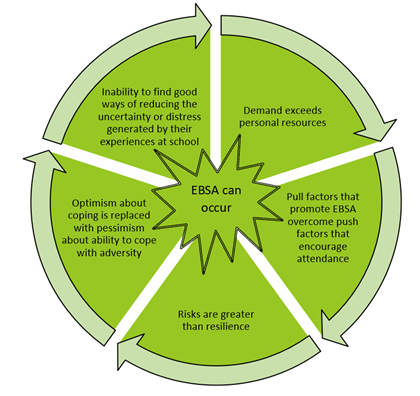
Understanding EBSA
Share
Dealing with EBSA (Emotional-Based School Avoidance) can be incredibly draining for both children and parents. It’s more than just missing school — it’s about the emotional struggles your child faces, often manifesting as fight or flight responses to the idea of going to school. Sometimes, they may avoid simple demands or routines, which could be a sign of PDA (Pathological Demand Avoidance) and or anxiety.
As parents, we feel the mounting stress from assessment reports, emails about attendance, and external pressure. It’s important to remember: this isn’t a choice they’re making. Their anxiety and emotional responses are real, and they often test even the most patient among us. The key is to approach it with understanding and compassion. Reducing demands, adjusting routines, and communicating with your school’s SENCO can make a significant difference. Sometimes, a later start or a flexible approach can ease the anxiety.
For a deeper understanding of PDA and how it relates to demand avoidance, check out my separate blog post on PDA and anxiety.
EBSA (Emotional-Based School Avoidance) is addressed through embedding systemic practices and policies that actively promote wellbeing and positive mental health for everyone. This approach is supported by whole-school systems, fostering a positive ethos and strong leadership practices that prioritize emotional health, inclusion, and understanding for all students.
I found a useful toolkit free & available to all provided by learn together Cambridgeshire. You can find their toolkit here
Most importantly, be kind to yourself. Parenting through EBSA is exhausting, and feeling overwhelmed is normal. The pressure from attendance reports and external expectations can add to that stress — but try to let go of the guilt. Your patience and self-care matter just as much as supporting your child.
Find yourself a community, it's doesn't take a village to raise a child just a well rested, equipt parent advocate for what their child needs. Need some 1:1 confidentially with another parent who can understand? See our 1:1 service which a small fee provides to our Commitment of supporting 10 local children with vital neurodevelopment assessments
